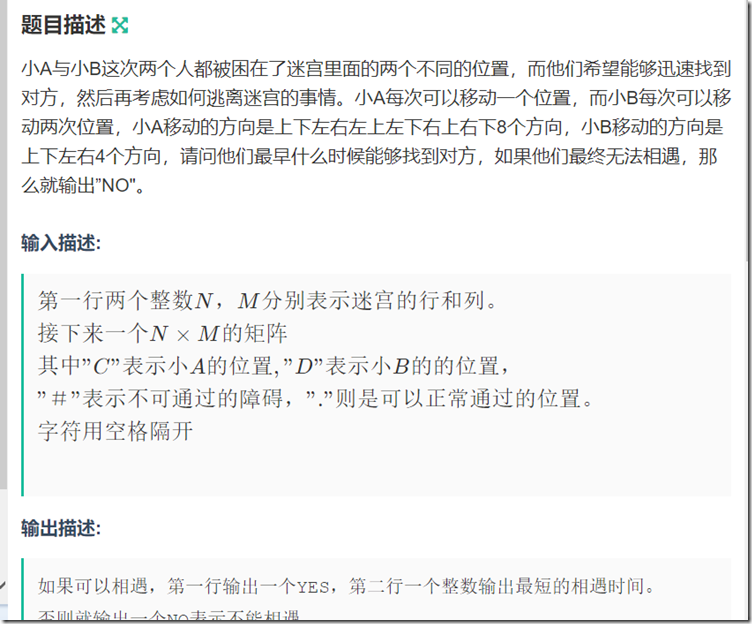分部扩展小A和小B的移动范围,并判断是否能相遇。
当st[1][x][y] == st[2][x][y]就相遇
#include <iostream> #include <algorithm> #include <queue> using namespace std; const int N = 1e3 + 5; char g[N][N]; bool st[2][N][N]; queue<pair<int, int>> q[2]; int n, m; int x, y, x2, y2; int dx[] = {0, 0, -1, 1, 1, -1, -1, 1}; int dy[] = {1, -1, 0, 0, 1, 1, -1, -1}; bool bfs(int t) { int sz = q[t].size(); while(sz--){ auto p = q[t].front(); q[t].pop(); int x = p.first, y = p.second; for(int i = 0; i < 4 + 4 * (!t); ++ i) { int nx = x + dx[i]; int ny = y + dy[i]; if(nx >= n || nx < 0 || ny >= m || ny < 0) continue; if(g[nx][ny] == '#' || st[t][nx][ny]) continue; if(st[!t][nx][ny]) return true; st[t][nx][ny] = true; q[t].push({nx, ny}); } } return false; } int min_steps() { q[0].push({x, y}); q[1].push({x2, y2}); st[0][x][y] = true; st[1][x2][y2] = true; int res = 0; while(!q[0].empty()||!q[1].empty()) { res ++; if(bfs(0)) return res; if(bfs(1)) return res; if(bfs(1)) return res; } return -1; } int main() { cin >> n >> m; for(int i = 0; i < n; ++ i) for(int j = 0; j < m; ++ j) { cin >> g[i][j]; if(g[i][j] == 'C') x = i, y = j; if(g[i][j] == 'D') x2 = i, y2 = j; } int res = min_steps(); if(res == -1) puts("NO"); else { puts("YES"); cout << res << endl; } return 0; }
